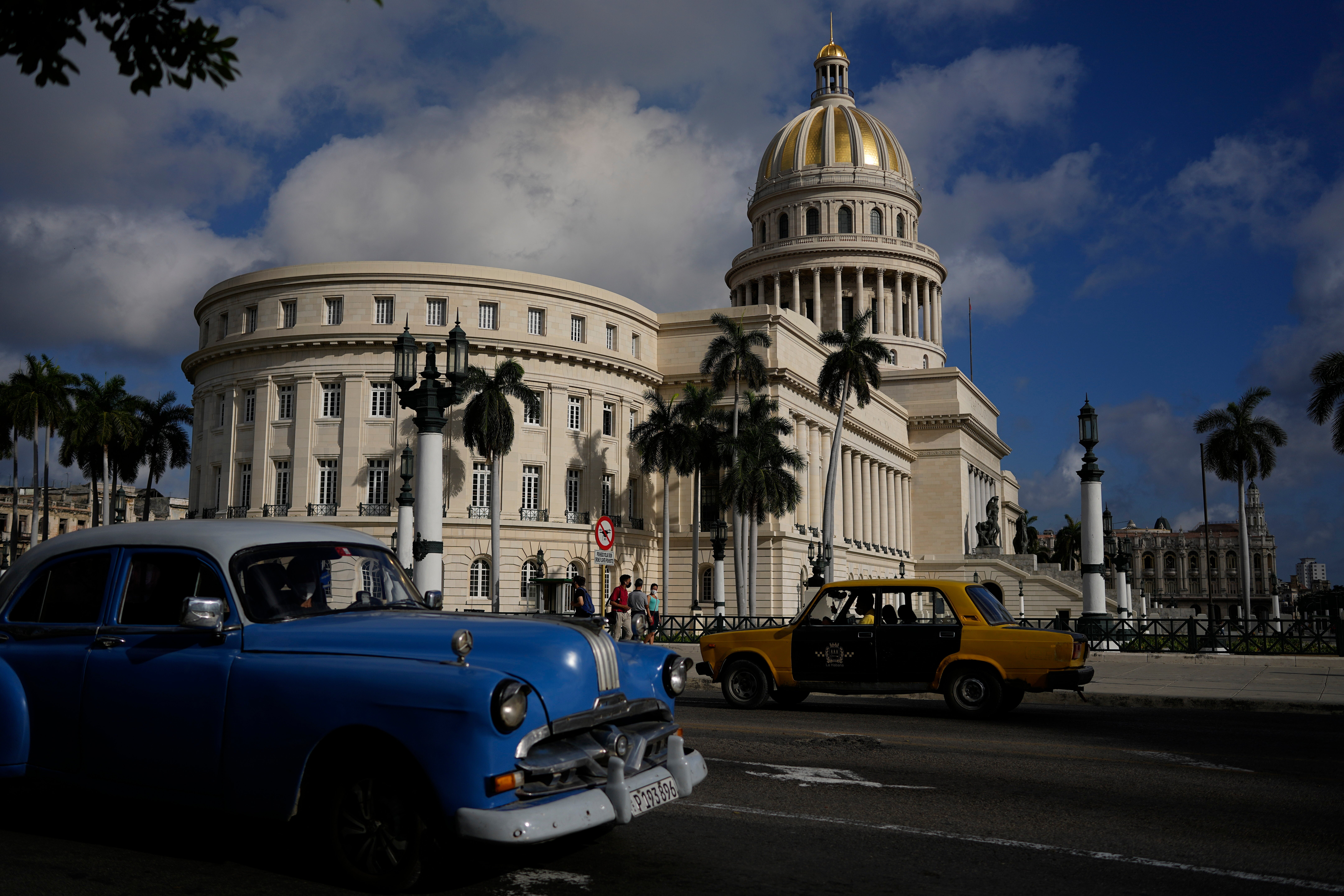Cuba's new private companies show off products at trade fair
A trade fair in Cuba's capital is a commercial milestone for the country

Your support helps us to tell the story
From reproductive rights to climate change to Big Tech, The Independent is on the ground when the story is developing. Whether it's investigating the financials of Elon Musk's pro-Trump PAC or producing our latest documentary, 'The A Word', which shines a light on the American women fighting for reproductive rights, we know how important it is to parse out the facts from the messaging.
At such a critical moment in US history, we need reporters on the ground. Your donation allows us to keep sending journalists to speak to both sides of the story.
The Independent is trusted by Americans across the entire political spectrum. And unlike many other quality news outlets, we choose not to lock Americans out of our reporting and analysis with paywalls. We believe quality journalism should be available to everyone, paid for by those who can afford it.
Your support makes all the difference.The event at a convention center in Cuba's capital looks like a lot of trade fairs: Music blares as visitors stroll between colorful booths displaying a wild variety of products: furniture or clothing, glassware or recycled paper, chocolates or cleaning products.
But it's a commercial milestone for Cuba: The companies showing off their wares are largely formal, private companies that were legalized only about six months ago — more than a half century after the Communist government banned nearly all private enterprise.
“We're experiencing something without precedent, at least for our generation," said César Santos, a 36-year-old engineer who is a partner in Lucendi SRL, a company that offers electrical installations both for private and state clients. “We are seeing other businesses that we didn't even know existed.”
Santos was born 18 years after the government closed or took over private businesses in 1968, consolidating a Soviet-style socialist system that had been forged following the 1959 revolution led by Fidel Castro.
Cuba's single-party political system has survived the 1991 collapse of the Soviet Union, but its socialist economy has continually struggled to find its footing in the decades following the loss of heavy Soviet subsidies. It has long tried to attract foreign investors and has expanded tourism, despite U.S. embargo measures that impede both. But productivity in the state-run sector has remained dismal.
Fidel Castro's government reluctantly began allowing small-scale individual private businesses in the early 1990s, then cracked down amid complaints they were creating a class of relatively rich people under a system that prizes equality over wealth.
With the inefficient economy still struggling, the government led by his brother and heir Raul once again opened the door to individual businesses in 2010. On the eve of the pandemic, some 600,000 people were working in that sector on the island of 11.3 million people.
They run little restaurants, rent out rooms, offer repair services, even at least one chic clothing boutique — though they supposedly can employ only family members or a handful of outsiders.
But the new policy that took effect in September — while the economy was slammed by shortages, pandemic restrictions and a tightened U.S. embargo — potentially goes far beyond: It allows actual companies that can employ up to 100 people, can get formal financing and do business with state enterprises.
Within six months, 2,614 new “limited responsibility societies” — or SRLs in Spanish — have registered. And 2,523 of those are private companies, with the rest either state or cooperative enterprises. Most are in the Havana area.
So far, they employ about 42,000 people.
Restrictions remain, however. The government says the state will remain the dominant force in the economy and the new companies can't do journalism or offer key professional services such as architecture, medicine or law.
And the business people at the fair said they still face bureaucratic hurdles that need to be smoothed if the system is to work better: For example, banking, import and export red tape is complicated, they said.
The fair closing Sunday at the Expocuba center on the southern fringe of Havana features 720 companies and cooperatives showing off everything from yoghurt to construction materials.
Officials hoped the gathering in part would help entrepreneurs make business contacts among themselves, said Suleidis Álvarez, an official with the capital's Plaza of the Revolution municipality. For example, she said, a woodworking company had found a producer of nails it needed.
The youth of the participants was notable on an island that has suffered the loss of many young people through emigration.
“The migratory crisis we're experiencing currently is really sad," Santos said. “Nevertheless, we are seeing opportunities arising through this private enterprise (policy). ... I prefer to bet on building my business in the country where I am.”